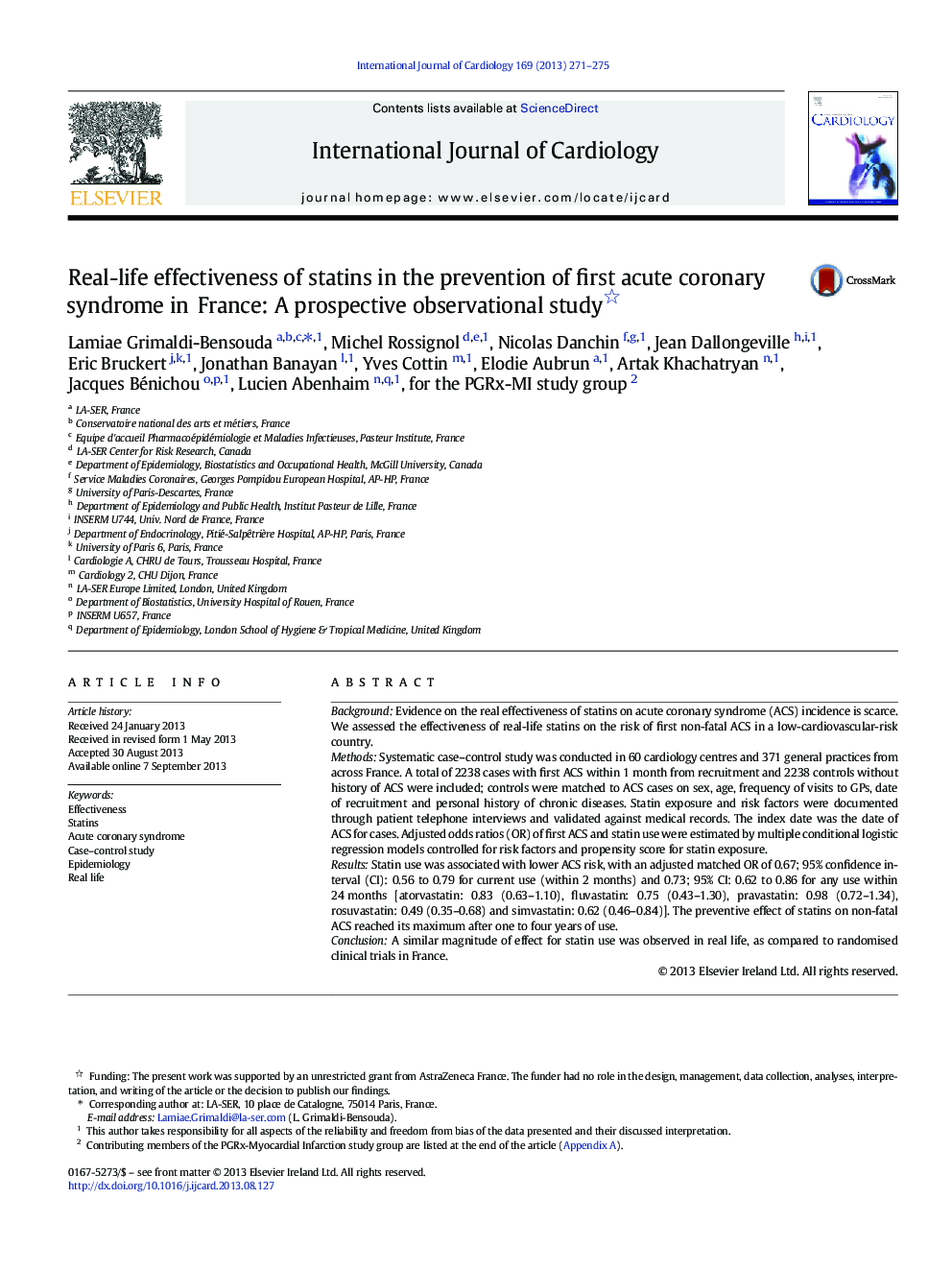| Article ID | Journal | Published Year | Pages | File Type |
|---|---|---|---|---|
| 5973988 | International Journal of Cardiology | 2013 | 5 Pages |
BackgroundEvidence on the real effectiveness of statins on acute coronary syndrome (ACS) incidence is scarce. We assessed the effectiveness of real-life statins on the risk of first non-fatal ACS in a low-cardiovascular-risk country.MethodsSystematic case-control study was conducted in 60 cardiology centres and 371 general practices from across France. A total of 2238 cases with first ACS within 1Â month from recruitment and 2238 controls without history of ACS were included; controls were matched to ACS cases on sex, age, frequency of visits to GPs, date of recruitment and personal history of chronic diseases. Statin exposure and risk factors were documented through patient telephone interviews and validated against medical records. The index date was the date of ACS for cases. Adjusted odds ratios (OR) of first ACS and statin use were estimated by multiple conditional logistic regression models controlled for risk factors and propensity score for statin exposure.ResultsStatin use was associated with lower ACS risk, with an adjusted matched OR of 0.67; 95% confidence interval (CI): 0.56 to 0.79 for current use (within 2Â months) and 0.73; 95% CI: 0.62 to 0.86 for any use within 24Â months [atorvastatin: 0.83 (0.63-1.10), fluvastatin: 0.75 (0.43-1.30), pravastatin: 0.98 (0.72-1.34), rosuvastatin: 0.49 (0.35-0.68) and simvastatin: 0.62 (0.46-0.84)]. The preventive effect of statins on non-fatal ACS reached its maximum after one to four years of use.ConclusionA similar magnitude of effect for statin use was observed in real life, as compared to randomised clinical trials in France.
